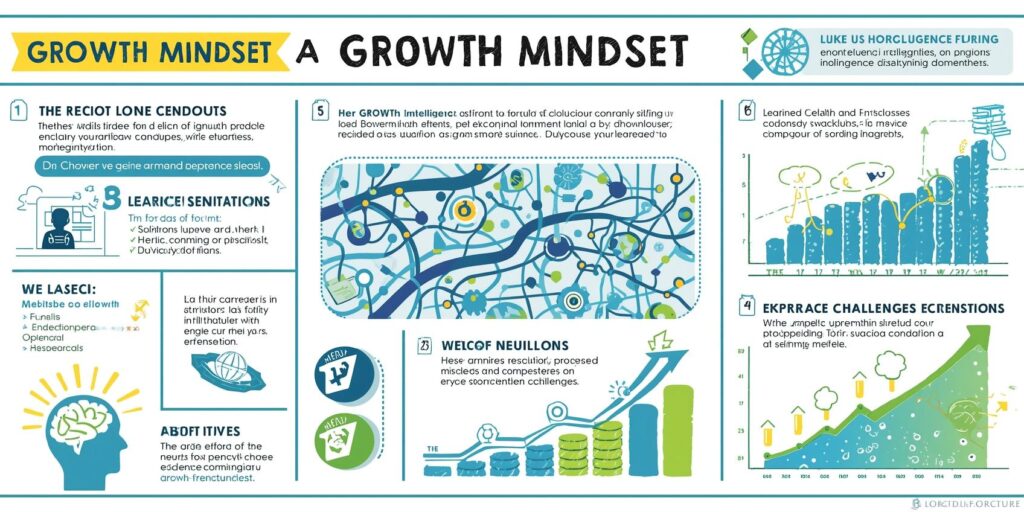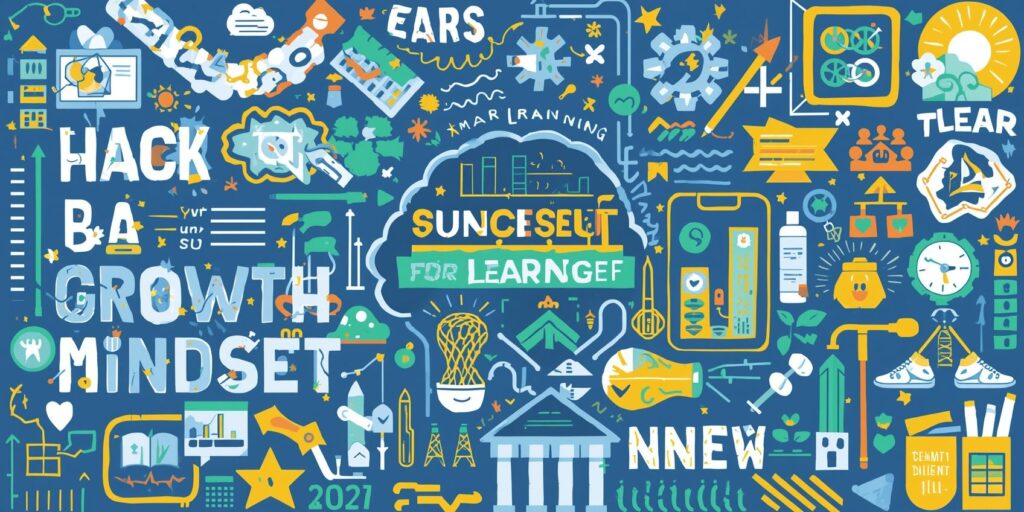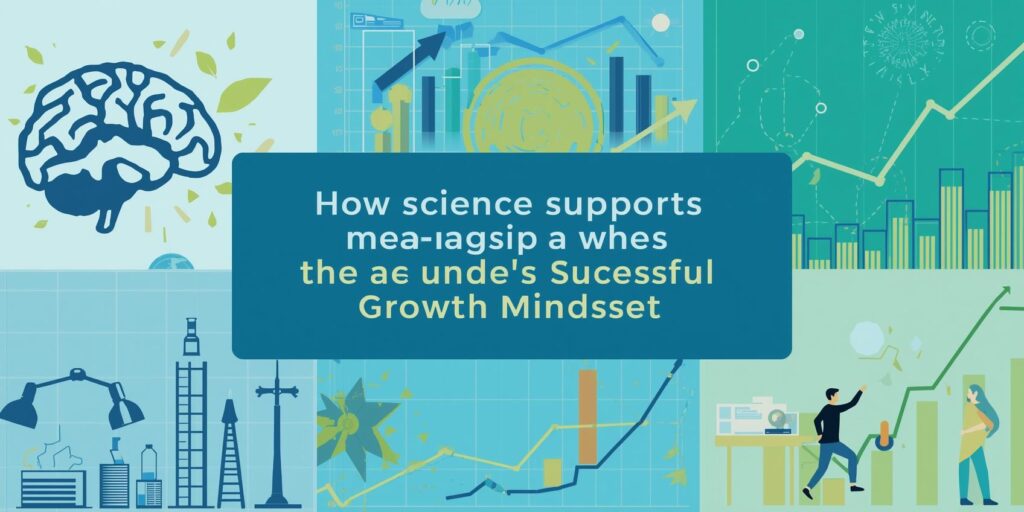
How Science Supports the Idea of the Successful Growth Mindset
The growth mindset is a powerful idea in modern psychology and education.
It tells us that our abilities and intelligence can improve with effort, strategies, and support.
Many people once believed that talent was fixed, but science shows otherwise.
Research proves that our brains can grow, adapt, and change throughout life.
Because of this, people with a growth mindset often achieve more success than those with a fixed mindset.
In this blog, we will explore how science supports the growth mindset and why it helps people succeed in school, work, and life.
What Is the Growth Mindset?
First of all, let us understand what the growth mindset means.
The term “growth mindset” was created by Dr. Carol Dweck, a psychologist at Stanford University.
She found that some people believe their abilities can grow with practice and learning.
This belief is called a growth mindset.
On the other hand, some people think intelligence and talent are fixed.
They believe no matter how hard they try, they cannot improve.
This is called a fixed mindset.
However, science proves that the growth mindset is more realistic.
Our brains are flexible, and our skills are not limited from birth.
Best Books for Young Children in India 2025
How the Brain Learns and Grows
One of the strongest pieces of evidence for the growth mindset comes from neuroscience.
Scientists have discovered that the brain is not like a machine with a set limit.
Instead, it is like a muscle that gets stronger the more we use it.
This ability of the brain to grow and change is called neuroplasticity.
For example, when we practice a skill such as math, painting, or sports, our brain forms new connections between cells.
The more we practice, the stronger those connections become.
As a result, our performance improves over time.
This proves that effort and learning create real physical changes in the brain.
The Science of Neuroplasticity

Next, let us look deeper at neuroplasticity.
Studies using brain scans show that people who learn new things actually change the shape and structure of their brains.
For instance, musicians who practice daily have larger areas in their brain that control hand movements and sound processing.
Similarly, taxi drivers in London were found to have a bigger hippocampus, which is the part of the brain used for navigation.
This happened because they constantly practiced remembering streets and routes.
Therefore, science clearly shows that the brain grows with use.
This supports the core idea of the growth mindset.
10 Bedtime Stories That Teach Good Habits
Why Failure Is Important in Growth
Many people fear failure, but science proves that failure is a natural and useful part of growth.
When we fail at a task, our brain actually becomes more active.
It tries to find new strategies to solve the problem.
Research shows that students who are encouraged to learn from mistakes develop stronger problem-solving skills.
On the other hand, students who fear failure often give up quickly.
So, instead of avoiding mistakes, people with a growth mindset use them as learning opportunities.
This approach leads to long-term success.
Growth Mindset and Motivation
Another way science supports the growth mindset is through studies on motivation.
People with a growth mindset are more motivated to learn because they believe their effort will pay off.
For example, experiments show that when students are praised for effort instead of talent, they choose harder tasks.
They do not fear challenges. But when students are praised only for being “smart,” they often avoid hard tasks to protect their image.
This proves that the growth mindset increases motivation and helps people take on challenges without fear.
15 Inspiring Teen Entrepreneurs in India
Evidence from Education
In education, many studies support the power of the growth mindset.
For example, Dr. Carol Dweck’s research found that students who were taught about brain growth improved their grades.
They understood that effort and strategies could help them get better.
Moreover, schools that teach growth mindset principles see students showing more persistence and higher achievement.
Teachers also report that students become more engaged in class.
Therefore, scientific studies confirm that applying growth mindset strategies in education can improve learning outcomes.
Growth Mindset in the Workplace
Science does not only support the growth mindset in schools but also in workplaces.
Research shows that employees with a growth mindset are more likely to seek feedback, take risks, and develop new skills.
For example, a study by Microsoft found that shifting to a growth mindset culture improved teamwork, innovation, and problem-solving.
Employees became more open to challenges and worked better together.
As a result, businesses that encourage growth mindset thinking often perform better in the long run.
The Role of Praise and Feedback
Science also teaches us that the type of praise and feedback people receive shapes their mindset.
For instance, praising a child for being “smart” creates a fixed mindset. But praising them for their hard work or strategies builds a growth mindset.
Brain studies show that when people expect feedback about effort, they are more engaged and active during challenges.
This proves that feedback shapes motivation and learning.
So, parents, teachers, and managers can support a growth mindset by giving the right kind of praise.
Soft Skills for Students: How to Stand Out Before You Graduate
Growth Mindset and Mental Health

Another important area where science supports the growth mindset is mental health.
People with a growth mindset are more resilient in the face of stress and challenges.
They see struggles as temporary and believe they can improve with effort.
Research shows that students with a growth mindset experience less anxiety about schoolwork.
Similarly, adults with a growth mindset report lower levels of depression because they view setbacks as opportunities, not permanent failures.
Therefore, the growth mindset not only helps in learning and work but also supports mental well-being.
Growth Mindset in Sports and Performance
Athletes also show strong evidence of the growth mindset in action.
For example, sports psychology studies reveal that athletes who believe in practice and learning improve faster than those who rely only on talent.
When athletes face failure, those with a growth mindset bounce back more quickly.
They train harder, adopt new techniques, and eventually succeed.
This is why many world-class athletes, like Michael Jordan, speak about the importance of learning from failure.
Hence, science in sports also confirms the benefits of a growth mindset.
The Connection Between Effort and Success
Science repeatedly proves that consistent effort leads to improvement.
For example, brain imaging shows that repeated practice builds stronger neural pathways.
This means that the more time we put into a skill, the more automatic it becomes.
But without effort, the brain does not make these changes.
This explains why people who believe in the growth mindset achieve more—they are willing to put in the work that leads to brain growth.
Therefore, science directly supports the link between effort and success.
What Studies Show About Those Who Fail and Keep Trying Anyway
How Teachers and Parents Can Encourage Growth
First of all, teachers and parents can use simple methods to build a growth mindset.
They can praise effort instead of talent, encourage challenges, and normalize mistakes.
Next, they can teach children about how the brain grows with practice.
When children understand this science, they become more motivated to try.
Finally, adults can model a growth mindset themselves by showing that they are also learning and improving.
This sets a positive example for children.
The Role of Language in Shaping Mindset
Words have power, and science proves this. Studies show that the way adults talk to children can influence their beliefs about intelligence.
For instance, saying “You worked hard on this problem” encourages growth.
But saying “You are so smart” can limit children’s willingness to take risks.
Therefore, using growth-oriented language helps children and adults build stronger confidence and motivation.
How Growth Mindset Changes the Brain Over Time

Long-term studies reveal that people who adopt a growth mindset make lasting changes in their brains.
For example, students who practice math with a growth mindset show greater brain activity in problem-solving areas.
Similarly, adults who keep learning new skills, such as languages or musical instruments, protect their brains from aging.
This shows that the growth mindset supports lifelong learning and brain health.
Why Some People Resist the Growth Mindset
Even though science supports the growth mindset, some people resist it.
They may believe their past failures prove they cannot improve.
Others may fear judgment from others if they try and fail.
However, science proves these fears are not true.
Anyone can grow with effort and strategies.
The key is to shift thinking step by step, using small wins to build confidence.
Growth Mindset in Everyday Life
The growth mindset is not just for school or work.
It helps in relationships, hobbies, and personal goals.
For example, people with a growth mindset are more likely to work through conflicts instead of giving up.
They are also more open to learning new skills, such as cooking, art, or fitness.
As a result, they enjoy richer and more fulfilling lives.
Science proves that those who keep learning and growing stay healthier and happier.
Combining Growth Mindset with Grit
Another scientific idea that supports success is grit.
Grit means sticking with long-term goals even when it gets hard.
When people combine grit with a growth mindset, they achieve even greater success.
Studies by psychologist Angela Duckworth show that grit predicts achievement better than talent alone.
And grit is easier to build when you believe effort makes a difference, which is the essence of the growth mindset.
Myths About the Growth Mindset
Some people misunderstand the growth mindset.
They think it means “anyone can become anything” with enough effort.
But science shows that while growth is possible, effort must also be paired with good strategies, feedback, and time.
For example, not everyone can be an Olympic runner, but everyone can get better at running with training.
The growth mindset is not about being the best—it is about being better than before.
Why Science Loves the Growth Mindset
Finally, science loves the growth mindset because it explains how humans adapt, learn, and succeed.
From brain scans to classroom studies, evidence shows that we are not fixed beings.
Instead, we are learners who can grow at every stage of life.
This is why psychologists, educators, and scientists continue to support the growth mindset.
It is not just an inspiring idea—it is backed by real science.
Conclusion on How Science Supports the Idea of the Successful Growth Mindset: The Science of Success Through Growth Mindset
In conclusion, the growth mindset is more than a motivational phrase.
It is a scientific fact that effort, learning, and resilience change our brains and lives.
Neuroplasticity, motivation research, and educational studies all prove its value.
So, whether you are a student, a professional, or someone working on personal goals, remember that science is on your side.
With effort, feedback, and persistence, you can grow and succeed.
Frequently Asked Questions
What is the science behind growth mindset?
The science behind growth mindset comes from research on neuroplasticity, which shows that the brain can form new connections and grow stronger with practice and learning. Studies in psychology and education also prove that effort, strategies, and resilience improve skills and intelligence over time.
How does the research of neuroscientists support the idea that growth mindsets are important to success?
Neuroscientists have shown that the brain is capable of neuroplasticity, meaning it can change and strengthen through effort, practice, and learning. This supports the growth mindset by proving that intelligence and abilities are not fixed, but can improve over time, leading to greater success.
Does a growth mindset increase confidence?
Yes, a growth mindset increases confidence because it helps people believe they can improve through effort and learning. As they see progress from practice, their self-belief grows stronger, making them more willing to take on challenges.
What are the 5 characteristics of a growth mindset?
The five key characteristics of a growth mindset are embracing challenges, persisting through setbacks, valuing effort, learning from feedback, and finding inspiration in others’ success. Together, these traits help people keep improving and achieve greater success over time.
What is the growth mindset theory of self confidence?
The growth mindset theory of self-confidence suggests that believing abilities can improve through effort builds stronger self-belief. When people see progress from practice and learning, their confidence grows because they trust they can overcome future challenges.






